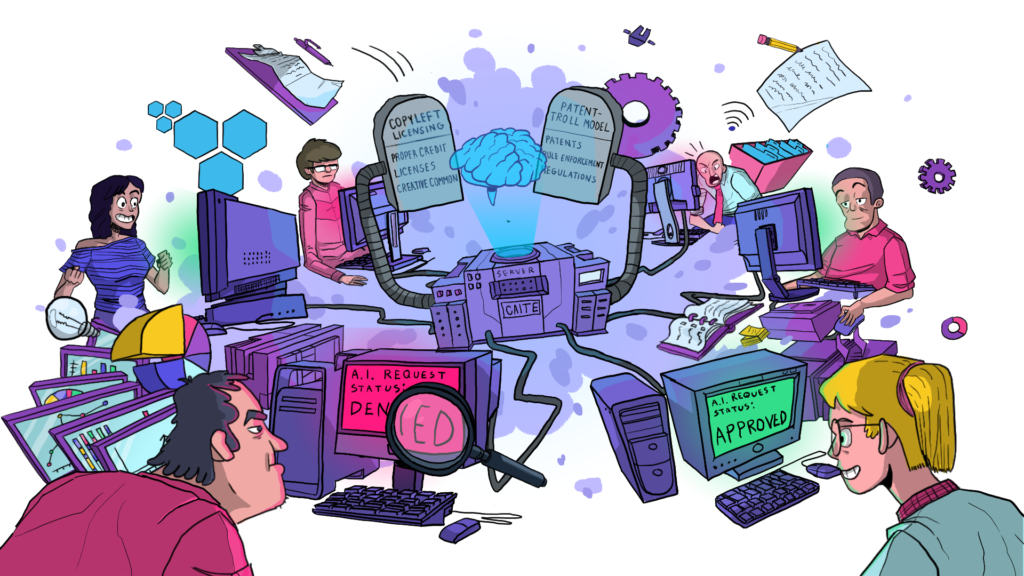‘Best of two worlds’: Ethical model for artificial intelligence combines flexibility with enforcement

Texas A&M University School of Public Health researchers are developing a new governance model for ethical guidance and enforcement in the rapidly advancing field of artificial intelligence (AI). Known as Copyleft AI with Trusted Enforcement, or CAITE, the researchers believe this model will guard against the potential harms of AI without hindering technological advancements.
Cason Schmit, assistant professor at the School of Public Health and director of the Program in Health Law and Policy, Megan Doerr of Sage Bionetworks and Jennifer Wagner of Penn State discuss their new model in a recent article in the journal Science.
AI promises to revolutionize nearly every aspect of our daily lives. However, misuse of AI-based tools could cause harm, especially to communities already facing inequity and discrimination.
This potential for harm calls for ethical guidance through regulation and policy. But the rapid advancement of AI and the often-inflexible nature of government regulation have made creating such ethical guidance challenging.
Schmit, Doerr and Wager developed the CAITE model to face these challenges. CAITE combines aspects of copyleft licensing and the patent-troll model, two methods of managing intellectual property rights that can be considered at odds with one another.
Copyleft licensing allows sharing of intellectual property under conditions like attributing the original creator or noncommercial use, and derived works must use the same license terms as the original. Creative Commons licenses are a type of copyleft licensing. However, copyleft licensing schemes usually have little enforcement power.
The other side of the CAITE model uses the patent troll approach, which uses enforcement rights to ensure compliance. A patent troll is an organization that owns intellectual property rights and sues others in court to generate revenue rather than creating or licensing technology.
The CAITE model is built on an ethical use license. This license would restrict certain unethical AI uses and require users to abide by a code of conduct. Importantly, it would use a copyleft approach to ensure that developers who create derivative models and data must also use the same license terms as the parent works. The license would assign the enforcement rights of the license to a designated third-party known as a CAITE host. In this way, the enforcement rights for all these ethical use licenses would pool in a single organization, empowering the CAITE host as a quasi-government regulator of AI.
“This approach combines the best of two worlds: a model that is as fast and flexible as industry, but with enforcement teeth and power of a traditional government regulator,” Schmit said.

